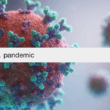
Introduction
Fasting, an ancient practice rooted in various cultural and religious traditions, has recently gained attention in the health and wellness community. Beyond its spiritual significance, fasting is now being recognized for its potential benefits in promoting longevity, preventing diseases, and enhancing overall health. This blog post explores the science behind fasting, its effects on aging and disease prevention, and how different fasting methods, such as intermittent fasting and fasting mimicking diets, can contribute to a healthier life.
Understanding Fasting and Its Types
Intermittent Fasting (IF)
Intermittent fasting involves alternating periods of eating and fasting. Common patterns include daily 16-hour fasts or fasting for 24 hours, twice a week. This approach to fasting has been linked to various health benefits, including weight management and improved metabolic health.
Periodic Fasting
Periodic fasting extends the fasting period beyond a day, sometimes lasting up to a week. This approach is often used for deeper metabolic changes and may have stronger impacts on health and longevity.
Fasting Mimicking Diets (FMD)
Developed by Dr. Valter Longo, the Fasting Mimicking Diet is a specific program designed to provide the benefits of fasting while still allowing for the intake of limited, nutrient-rich foods. It aims to mimic the biochemical effects of a full fast.
The Science Behind Fasting
Fasting impacts the body at multiple levels, from cellular to systemic. During fasting, the body shifts from using glucose as its primary energy source to using ketones. This metabolic switch has several effects:
- Enhanced Autophagy: Fasting increases autophagy, a process where cells clean out damaged components. This may slow down the aging process and prevent diseases, including cancer.
- Reduced Oxidative Stress: Fasting can decrease oxidative stress and inflammation, factors involved in aging and chronic diseases.
- Improved Insulin Sensitivity: Fasting improves insulin sensitivity, reducing the risk of obesity, diabetes, and metabolic syndrome.
Fasting for Disease Prevention
Heart Disease
Fasting has shown promise in reducing risk factors associated with heart disease, such as high blood pressure, cholesterol levels, and inflammatory markers.
Cancer
While more research is needed, some studies suggest that fasting can slow the progression of certain cancers and enhance the effectiveness of chemotherapy.
Obesity and Diabetes
Fasting, particularly intermittent fasting, has been effective in weight loss and improving blood sugar control, crucial in managing obesity and diabetes.
Fasting and Longevity
Aging is a complex process influenced by genetic, environmental, and lifestyle factors. Fasting influences aging by:
- Slowing Cellular Aging: By enhancing autophagy and reducing oxidative stress, fasting may protect cells from the wear and tear associated with aging.
- Promoting Healthy Genetic Expression: Fasting can influence gene expression related to longevity and disease resistance.
Practical Tips for Fasting
- Start Slowly: If new to fasting, start with shorter fasting periods and gradually increase.
- Stay Hydrated: Drink plenty of water and herbal teas during fasting periods.
- Eat Nutrient-Dense Foods: When not fasting, focus on a balanced diet rich in fruits, vegetables, lean proteins, and healthy fats.
- Monitor Your Health: Keep an eye on how your body responds to fasting, especially if you have existing health conditions.
- Consult Healthcare Professionals: Always consult with a healthcare provider before starting any fasting regimen, particularly if you have health concerns or are taking medications.
Enhancing Cognitive Health Through Fasting
Brain Health and Neuroprotection
Fasting is not only beneficial for the body but also for the brain. Research indicates that fasting can enhance cognitive function and may offer neuroprotective benefits. During fasting, the production of neurotrophic factors such as BDNF (Brain-Derived Neurotrophic Factor) increases, which supports the growth and survival of neurons. This mechanism is vital in preventing neurodegenerative diseases like Alzheimer’s and Parkinson’s.
Impact on Mood and Mental Well-being
Fasting has also been associated with improvements in mental health. The process can lead to the release of endorphins, creating a feeling of well-being. Additionally, fasting has been observed to have a stabilizing effect on mood, potentially benefiting those with mood disorders.
Fasting and Its Impact on the Immune System
Boosting Immune Function
Fasting can have a profound impact on the immune system. Periods of fasting have been shown to rejuvenate the immune system, partially by triggering stem cell regeneration of new immune cells. This regeneration improves the body’s ability to fight infections and inflammation.
Potential in Autoimmune Diseases and Allergies
Emerging research suggests that fasting might help in regulating the immune responses, potentially benefiting conditions like autoimmune diseases and allergies. By reducing inflammation, fasting can help in mitigating the symptoms of these conditions.
Fasting and Hormonal Balance
Regulating Hormones for Health
Fasting influences various hormones that are crucial for maintaining health. For example, it increases growth hormone levels, essential for growth, metabolism, and muscle strength. Additionally, fasting can help in balancing hormones like insulin, which can reduce the risk of metabolic diseases.
Fertility and Reproductive Health
Some studies suggest that fasting can have beneficial effects on reproductive health. In women, it may help in balancing hormones related to fertility. In men, intermittent fasting has been linked with improved testosterone levels. However, it’s crucial to approach fasting cautiously in the context of reproductive health and consult with a healthcare professional.
Conclusion
Fasting, whether through intermittent, periodic, or mimicking diets, offers a promising avenue for enhancing health, preventing aging diseases, and promoting longevity. While the science of fasting is still evolving, its potential benefits in disease prevention and health aging are increasingly supported by research. As with any health strategy, it’s essential to approach fasting mindfully, informed by science, and in consultation with healthcare professionals.



